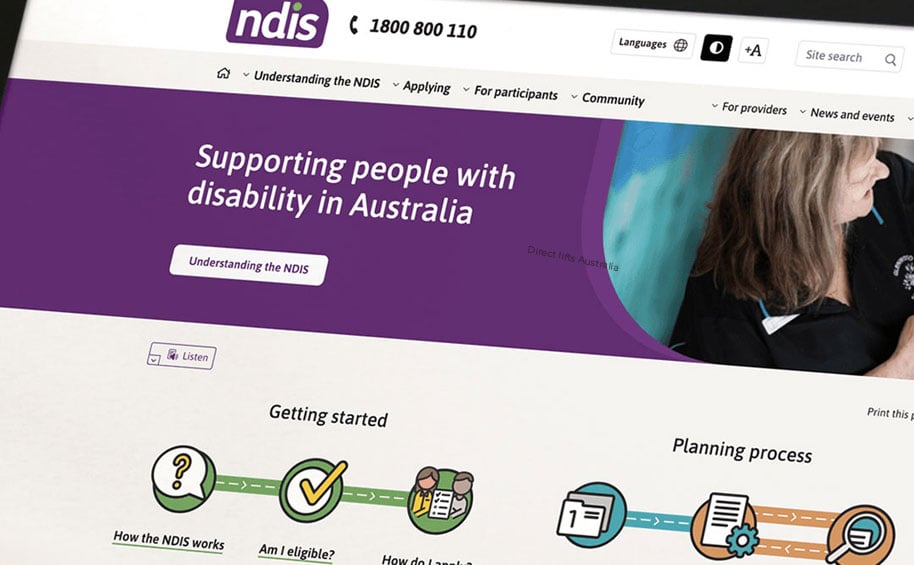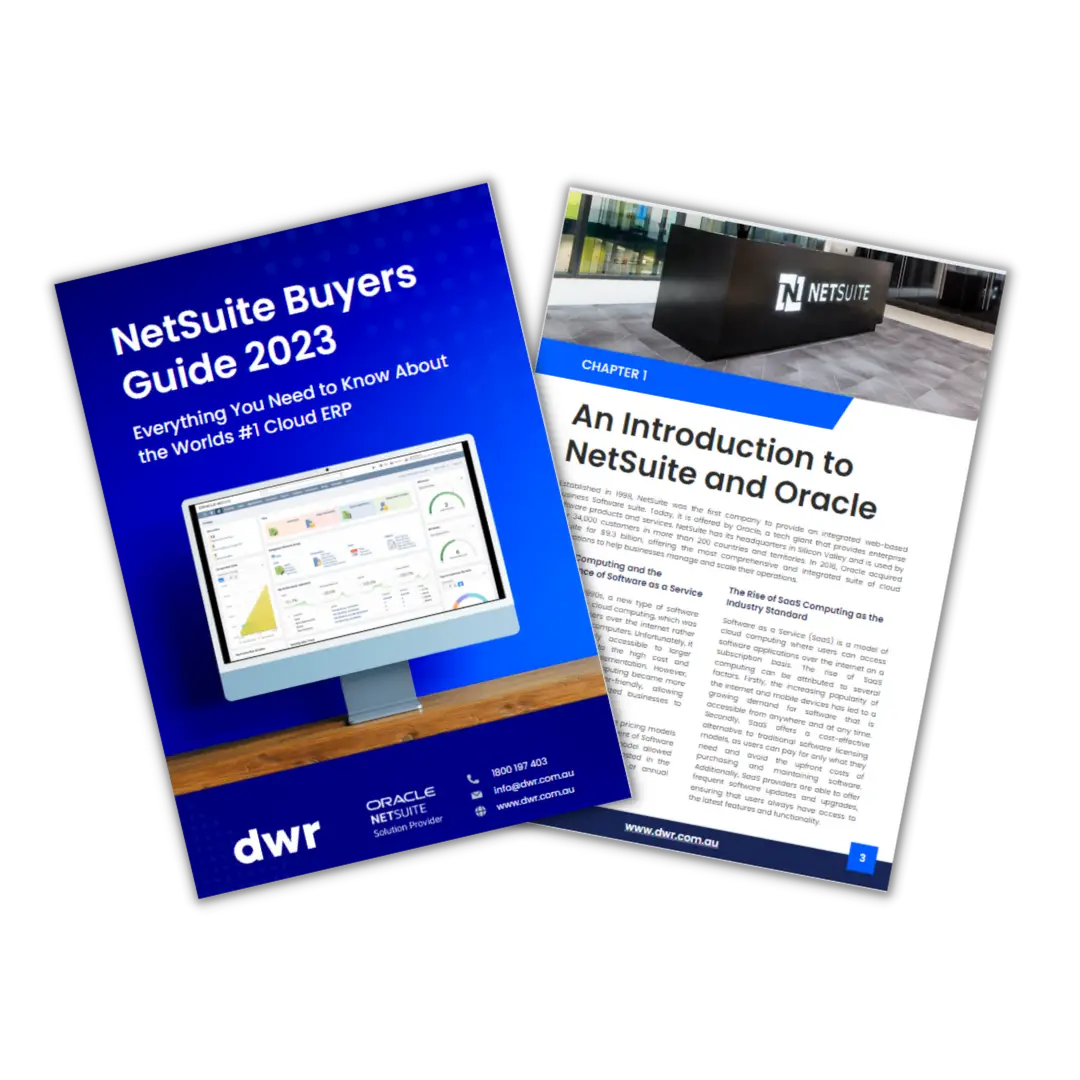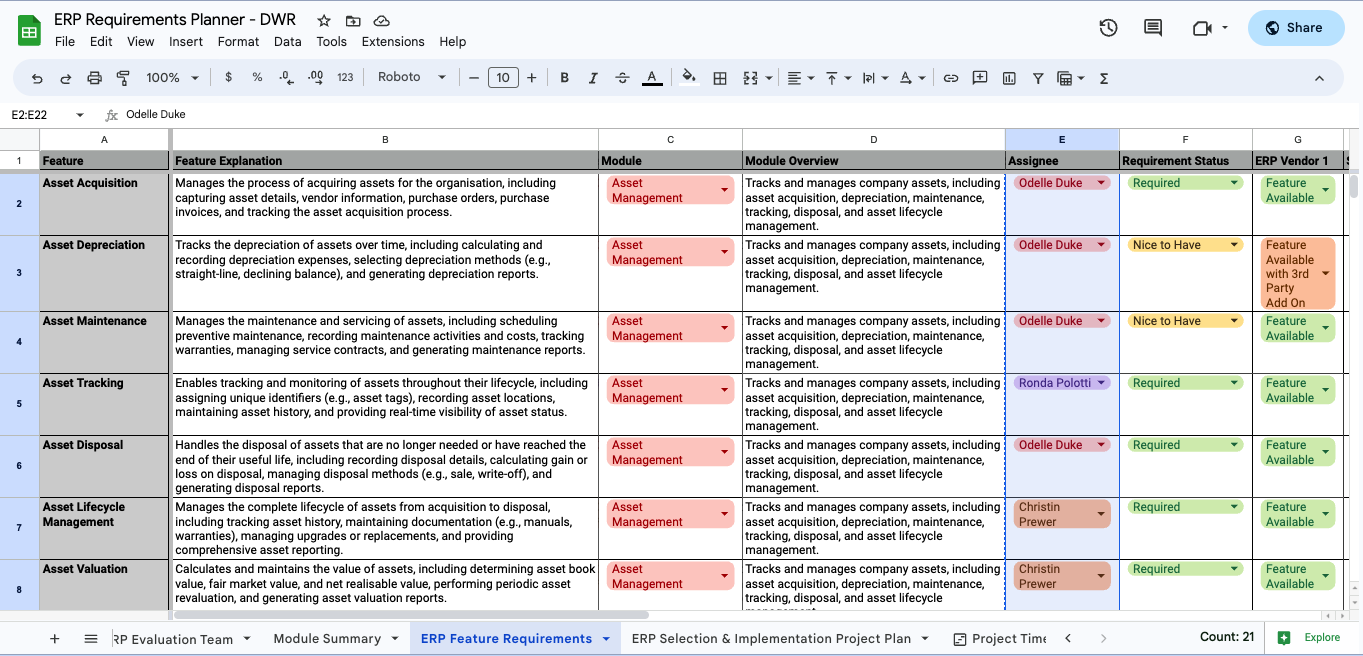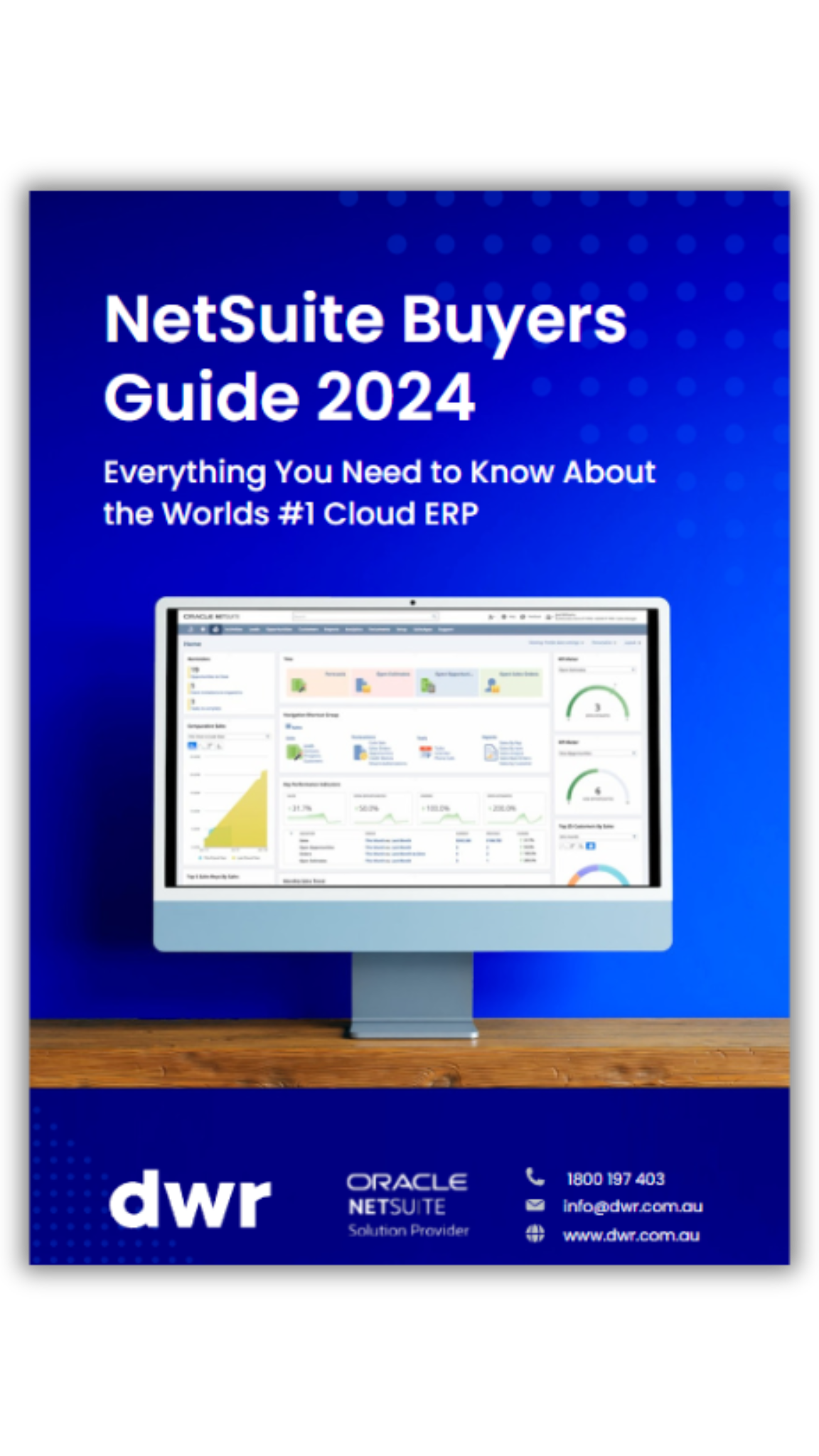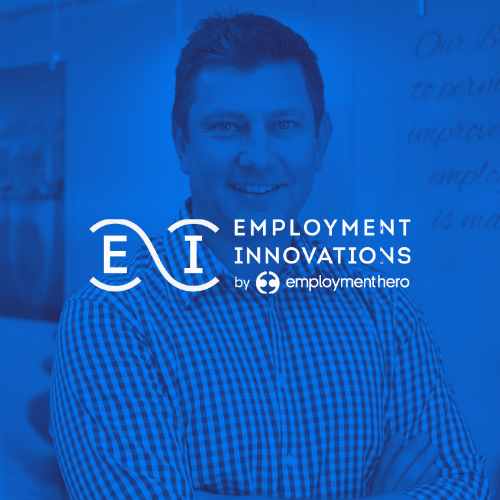Financial management software has become an essential tool for businesses to streamline their financial processes, gain insights into their financial health and make informed decisions.
The Importance of Financial Management Software
The right software can help companies save time, reduce errors and ensure compliance with various financial regulations. This blog post will discuss the importance of financial management systems, explore the top financial management software options, and provide insights into financial data management and financial tracking software.
Key Features of the Best Financial Management Solutions
When looking for the best financial management software, there are several critical features to consider. These systems should offer robust functionality, ease of use and seamless integration with other business processes. Let's examine the top features to look for in a financial software system:
Comprehensive Financial Management
The software should provide a complete financial management solution that includes general ledger, accounts payable, accounts receivable, and financial reporting. This ensures that all financial transactions are recorded and processed efficiently. A great example of a comprehensive financial and business management solution is NetSuite Financial Reporting which can be found at DWR.
Real-Time Data Access
The best financial management software should provide real-time access to financial data, enabling businesses to make timely decisions. For instance, the ERP Financial Systems offered by DWR provide real-time data access and powerful reporting capabilities.
Scalability
The software should be able to grow with your business. This means that it should have the flexibility to handle additional users, transactions, and business entities as your company expands. Scalability is essential for businesses looking to accommodate future growth without incurring substantial costs in software upgrades or replacements.
Customisation and Integration
The best financial management solution will be easily customisable and able to integrate with other systems and applications, such as customer relationship management (CRM) and human resources (HR) systems. Integration capabilities are vital for streamlining your business processes and ensuring data consistency across your organisation. A prime example of a customisable and integratable system is NetSuite, a comprehensive ERP solution for Financial Management.
Compliance and Security
The software must ensure compliance with various financial regulations and provide robust security features to protect sensitive financial data. This is crucial for maintaining your company's reputation and avoiding legal repercussions.
Benefits of Using Financial Management Software
Implementing financial management software can have a significant impact on your business operations and performance. Here are some of the key benefits of utilising financial tracking software:
Increased Efficiency in Your Accounting Department
Automating your financial processes through software systems reduces manual data entry and minimises errors. This not only saves time but also increases the accuracy of your financial records.
Improved Decision-Making
With real-time access to financial data, managers and executives can make informed decisions based on up-to-date information. This helps businesses identify potential issues and opportunities, allowing for proactive decision-making.
Enhanced Financial Visibility
Utilising financial management reporting tools, such as NetSuite Reporting, provides in-depth insights into your company's financial performance. This enables better budgeting, forecasting, and enterprise resource planning and allocation, leading to improved financial management and strategic planning.
Cost Savings
Streamlining financial processes through automation can result in significant cost savings. By reducing manual tasks and errors in manual processes, businesses can cut down on labour costs and time spent on financial management.
Regulatory Compliance
Financial management software ensures that your business adheres to various financial regulations, such as tax laws and accounting standards. This helps your company maintain a strong reputation and avoid potential legal issues.
Choosing the Right Financial Management System for Your Business
Selecting the most suitable and modern financial management software system for your business is crucial to maximising its benefits. Here are some essential factors to consider when choosing the right financial software system:
Business Size and Complexity
Choose a financial management software that caters to the specific needs of your business size and complexity. Smaller businesses may require a more straightforward solution, while larger organisations might need a comprehensive and scalable accounting system too.
Industry-Specific Requirements
Some industries have unique financial management needs and regulatory reporting requirements. Ensure that the software you select caters to your industry's specific demands and is able to be adapted to the unique nuances of your specific business industry.
Ease of Use
The best financial management software should be user-friendly, with an intuitive interface that enables users to navigate and access features quickly. Giving your team access to modern cloud technology helps to attract the best talent and increases the technological savviness of your workforce.
Budget
Consider the cost of the software, including upfront costs, subscription fees, and any additional expenses for customisation, training, and support. Select a financial management system that aligns with your budget without compromising on functionality.
Future Trends in Financial Management Software
The financial management software landscape is continuously evolving, with new technologies and innovations driving its development. Here are some key trends to watch out for in the coming years:
Artificial Intelligence (AI) and Machine Learning
AI and machine learning are increasingly being integrated into financial management applications, enabling more accurate forecasting, risk assessment, and fraud detection. These technologies have the potential to revolutionise accounting data management and decision-making processes.
Cloud Finance Solutions
As more businesses embrace cloud technology, we can expect to see a growing demand for cloud financial management systems. These solutions offer greater accessibility, flexibility, and scalability compared to traditional on-premises software.
Tiernan O’Connor from DWR states, "Cloud financial management systems offer greater flexibility, scalability, and security, making them increasingly popular among businesses of all sizes. This trend aligns with the overall shift towards cloud-based software solutions across various industries."
Mobile Integration
With the increasing reliance on mobile devices, financial management solution providers are developing mobile applications that allow users to access financial data and perform critical tasks from their smartphones or tablets. This will enhance the ease of use and accessibility of financial management systems.
Advanced Analytics
Financial software is becoming more sophisticated in terms of analytics capabilities, allowing businesses to gain deeper insights into their financial performance and make more informed decisions.
“Financial software is evolving to offer more sophisticated analytics capabilities, providing businesses with deeper insights into their financial performance”. As noted by Brian Sommer, CEO of TechVentive and a ZDNet contributor, "Modern financial management applications are equipped with advanced analytics and real-time reporting features that empower businesses to monitor their financial health closely and make data-driven decisions." As financial management systems continue to develop, businesses can expect even more robust analytics and reporting tools in the future.
Top Finance Management Software in Australia
"The best financial management solution will be easily customisable and able to integrate with other systems and applications, such as customer relationship management (CRM) and human resources (HR) systems."
Customer Case Study: Solotel Group - Streamlining Financial Management with NetSuite OneWorld
Solotel Group, a leading hospitality group in Australia, faced significant challenges managing its financial operations across its diverse portfolio of venues. With nearly 100 accounting software files spread across multiple systems, Solotel struggled with inefficient processes, time-consuming manual tasks, and a lack of real-time financial visibility. To overcome these challenges and improve financial management, Solotel turned to NetSuite OneWorld.
The Challenges
Before implementing NetSuite OneWorld, Solotel relied on disparate accounting systems to manage its financial operations. This resulted in a fragmented and cumbersome financial management process, which led to the following issues:
- Inefficient financial processes: Managing nearly 100 separate accounting files was time-consuming and prone to errors.
- Limited financial visibility: Solotel lacked real-time financial data and insights, making it challenging to make informed decisions and monitor performance across its venues.
- Inconsistent data: Due to the use of multiple systems, Solotel experienced inconsistencies in financial data and reporting.
The Results
Implementing NetSuite OneWorld has had a significant positive impact on Solotel's financial management processes. By consolidating its accounting files and streamlining financial operations, Solotel has been able to:
- Save time and resources: The unified financial management system has significantly reduced the time and effort required to manage financial processes.
- Improve decision-making: Real-time financial visibility and consistent reporting have empowered Solotel to make informed decisions and proactively address potential issues.
- Support growth: NetSuite OneWorld's scalability has enabled Solotel to accommodate future growth and expansion, ensuring the company's financial management system can adapt to its evolving needs.
Read The Case Study
Learn how Solotel, a leading hospitality group in Australia streamlined and consolidated nearly 100 accounting software files into a single instance of NetSuite OneWorld.
Tips for a Smooth Financial Management Software Implementation
Implementing a financial management system can be a complex process, but with careful planning and preparation, organisations can ensure a successful and seamless transition. Here are some practical tips for implementing a financial management system within your organisation:
1. Planning for Your Financial Management Software Implementation
Define clear objectives: Clearly outline your organisation's goals and expectations for the financial management system. This will help guide the implementation process and ensure that the software meets your specific needs.
Assemble a dedicated, project management team: Create a team of key stakeholders, including representatives from finance, IT, and other relevant departments. This team will be responsible for overseeing the implementation process and ensuring that the project stays on track.
Develop a project timeline: Establish a realistic timeline for the implementation process, including key milestones and deadlines. This will help ensure that the project remains on schedule and that all necessary resources are allocated.
2. Consider How to Migrate Data from Your Existing Accounting Software
Cleanse and organise data: Before migrating your financial data to the new system, ensure that it is accurate, consistent, and well-organised. This may involve reconciling discrepancies, updating outdated information, and standardising data formats.
Develop a data migration plan: Outline the steps and processes involved in migrating your financial data to the new system. This should include details on data mapping, data validation, and data import/export procedures.
Test the migration process: Conduct a trial run of the data migration process to identify any potential issues and ensure that the data is accurately transferred to the new system.
3. Training Employees on a New Financial Management Software
Develop a training plan: Create a comprehensive training plan that covers all aspects of the financial management software, including system navigation, key features, and best practices.
Offer a variety of training formats: Provide employees with different training options, such as in-person workshops, online tutorials, and self-paced learning materials. This will cater to different learning styles and help ensure that all employees are comfortable using the new system.
Monitor and assess training progress: Keep track of employee progress throughout the training process and address any issues or concerns as they arise. This will help ensure that employees are adequately prepared to use the financial management system.
4. Understand Change Management Techniques
Communicate the benefits early: Clearly communicate the advantages of the new financial management system to employees, including how it will improve efficiency, streamline processes, and support better decision-making. This will help build support and enthusiasm for the implementation process.
Address employee concerns quickly and openly: Be prepared to address any concerns or resistance from employees regarding the new system. This may involve providing additional information, training, or support to help alleviate concerns.
Establish a clear path to gaining support: Create a support system for employees to help them transition to the new financial management system. This could include both internal and external resources like implementation consultants.
In Summary
In conclusion, financial management software is a critical tool for businesses looking to streamline their financial processes, improve decision-making, and ensure compliance with financial regulations. The best financial management solutions should offer comprehensive functionality, real-time data access, scalability, and customisation options. By considering your business size, industry-specific requirements, ease of use, and budget, you can select the right financial management system to meet your organisation's needs. As technology continues to evolve, businesses must stay informed about the latest trends in financial management software to maintain a competitive edge. To learn more about why NetSuite is the world’s leading financial management software, reach out to the team of NetSuite experts at DWR.
This article talks about:
Finance teams, modern financial management systems, business intelligence, effective financial management system, ERP software, business planning, business data, best financial management systems, best business management solution, best financial management system, finance professionals, sophisticated accounting software, fixed asset management, entire business, financial reports, Workday financial management, accurate cash flow forecasting, global software provider, accurate financial statements, Maconomy streamlines business operations, enable businesses, expense tracking, global cash flow, finance teams transform, asset management, fixed assets, Oracle Fusion Cloud ERP, Happay solves complex finance, complete ERP system, financial consolidation, create professional invoices, helps companies track spend, digital economy, financial accounts, MYOB Advanced Business, payments management, track expenses, finance processes.
.svg)



.avif)
















